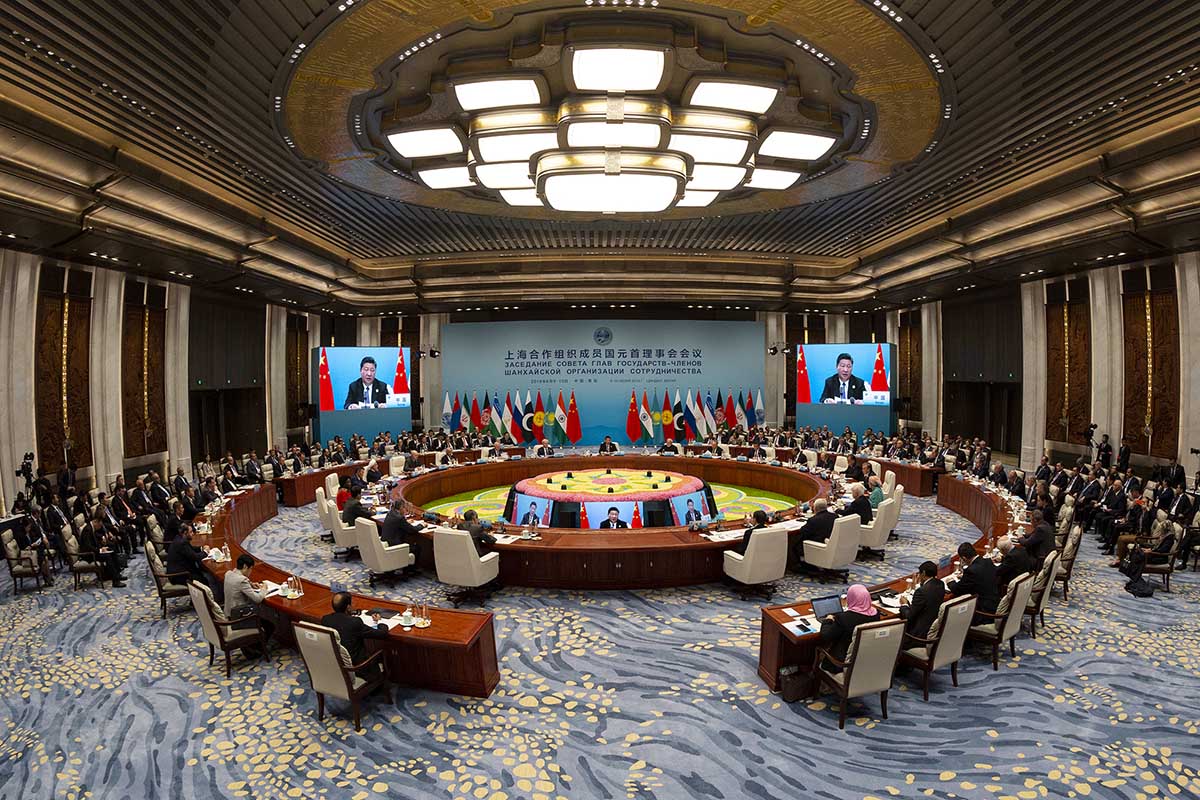Upgraded Shanghai Spirit for a Better Future

After adding India and Pakistan as the full member countries in 2017, the SCO has been widely expanded in terms of area, population and resources, becoming a globally influential organization. On the flipside, SCO member states now have starker differences in national conditions, history and culture.
Consequently, the major challenge facing all member states is integrating the new members into the SCO to jointly set off on a historic mission.
The Qingdao summit upgraded and enhanced the Shanghai Spirit at a critical juncture following the expansion of the SCO and pointed the direction for future development of the SCO, making it a major milestone in the SCO development process.
In his speech at this summit, Chinese President Xi Jinping first injected the Shanghai Spirit with five kinds of concepts—development concepts (innovative, coordinated, green and open development), security concepts (common, comprehensive, cooperative and sustainable security), cooperation concepts (open, inclusive, win-win and beneficial cooperation), culture concepts (equal, mutual-learning, dialogue-based and inclusive) and global governance concepts featuring extensive consultation, joint contribution, and shared benefits, which has greatly enriched the connotations of the Shanghai Spirit and established clearer standards for the SCO member states to conduct cooperation in political, security, economic and cultural fields.
These new ideas, as symbols of Chinese cultural essence, are already widely recognized by members of the SCO, evidencing that China and the other SCO member countries have reached higher consensus on values and concepts.
Promotion of the Shanghai Spirit will enhance the cohesion, action and influence of the SCO. As developing countries, SCO members are encountering similar challenges, and great potential and demand for them to work together continues. However, not all the member states have deep mutual trust. Unity and trust based on the Shanghai Spirit has become even more important because it will determine the future development of the SCO, especially after India and Pakistan joined. The Treaty of Long-Term Good-Neighborliness, Friendship and Cooperation between the Member States of the SCO reached under the guidelines of the Shanghai Spirit and the joint declaration issued at the SCO Qingdao summit will undoubtedly play an active and important role in SCO members overcoming their differences and boosting mutual trust.
Upholding the Shanghai Spirit, President Xi brought up specific proposals for cooperation in security, economy, culture and international issues under the SCO framework, addressing concerns of all SCO members. Security cooperation focuses on defense, law enforcement, information security and fostering peace in Afghanistan. These proposals aim to address new challenges faced by all SCO member states.
For economic cooperation between SCO members, President Xi emphasized the docking of development strategies, trade facilitation and trade balancing. He also suggested many measures that demonstrate that China is not pursuing maximization of its own interests, but rather seeks to break bottlenecks hindering economic and trade cooperation under the framework of the SCO through friendship, justice and pursuing shared interests. The SCO differs from other regional cooperation organizations thanks to its coordination of development strategies, which reflects mutual respect for state sovereignty and national interests of its member states. China proposed to establish a 30 billion yuan (US$4.7 billion) equivalent special lending facility under the framework of the SCO Interbank Association. This is a sign of China’s willingness to cooperate. It also evidences the common will of SCO members to escape the hegemony of the U.S. dollar and build a more fair and reasonable new regional economic order.
Cultural exchange will lay a solid foundation for the strengthening of mutual trust and win-win cooperation among SCO member states. The organization has developed a maturing mechanism for people-to-people exchange, which covers various fields. In the future, the SCO needs to utilize existing mechanisms for cultural exchange and expand their scales. To meet the needs of other member countries, China will formulate targeted proposals for cultural exchange. For example, China will provide 3,000 training opportunities in human resource development for SCO member states to relieve their shortage of qualified professionals in the field. Led by China, other member states will also take concrete measures to help expand scope, deepen cooperative levels and enlarge the scales of cultural exchange within the group.
Despite operating as a regional organization, the SCO is definitely not closed. In his speech, Xi proposed setting up international cooperation partnership networks, signifying that the organization is willing to cooperate with other countries and international organizations worldwide to build an “open, inclusive, clean, and beautiful world that enjoys lasting peace, universal security, and common prosperity,” in accordance with the Shanghai Spirit. The upgraded Shanghai Sprit will not only chart the course for the SCO, but also inject new energy into the development of the word and enable the SCO and the world to integrate into a community with a shared future.
The author is deputy director of the Institute of Belt and Road Initiative under the Chinese Academy of Social Sciences.